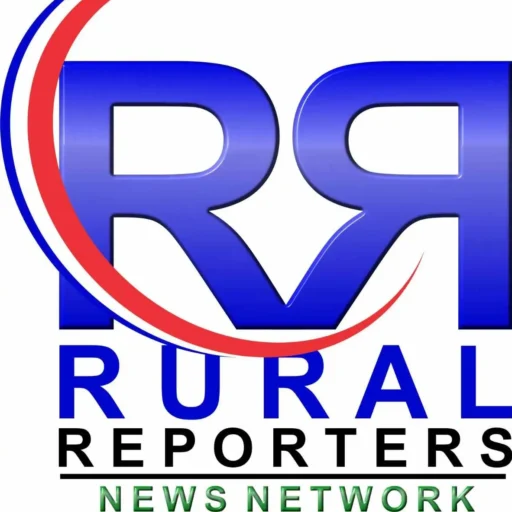A local nongovernmental organization is recommending series of proposed agriculture related policy actions to national government in its drive to promote the concept of ‘Liberia feed yourself.’
Liberia Feed Yourself Agriculture Initiative-Incorporated says in order for the people of Liberia to adequately address the issue of food insecurity, the administration of President Joseph Nyuma Boakai, should declare ‘Agriculture as a national security threat’. According to the Chief Executive Officer and founder of the organization-Mr. James Kollie Galakpai, Agriculture is the primary livelihood for more than 60% of Liberia’s Population and provides sustenance for many households engaging in cultivating varieties of crops. He went on to name among others, rice, cassava, oil palm, cocoa and rubber. Others mentioned were vegetables and sugarcane production.
The Liberia feed yourself boss was, however quick in stating that overall agriculture productivity is low; resulting in Liberia importing more than 80% of its staples food rice. A state of affairs, he averred, that should no longer continue, because it keeps “making the country vulnerable to global food price volatility”.
He lamented the sad state of the country’s agricultural sector, adding that the sector is poorly integrated, lacks basic infrastructure and equipment such as machines, farming tools, farm-to- market roads, fertilizers, and pesticides and food storage facility.
With rice and cassava being primary staple food crops, their production required serious attention but this is being undercut due to multiple obstacles to investment in the sector. They include: insufficiency of capital, lack of storage facilities, and limited access to updated price. He mentioned limited market information and professional expertise to increase farm yield or productivity in the country.
“Liberia has the favorable climate, manpower and fertile soil to grow whatever food we want in our country but unfortunately the political will isn’t there at all,” he added.
Liberia has suitable climate for horticulture such as production of peppers, okra, onion, tomato, and squash among others; which are in high demand throughout the country all year round.
CEO Galakpai then added that with the right cum proper support, “Lowland cultivation and low-cost irrigation would give we smallholders the opportunity to increase productivity and expand market share of these valuable crops”.
“Liberia has an Atlantic coastline spanning about 580 kilometers endowed with abundant marine freshwater resources provide breeding grounds varieties of marine species including Crab , lobster , shrimp , tilapia, tuna , shark , croaker and barracuda ;for me, we can farm all of these right here at home provided the government give us the much needed support,” said Mr. Galakpai.
Speaking relative to importation of food items especially rice, Galakpai said over the last 4 years, the government created stability in market prices by subsidizing rice imports. He disclosed that “From 2020 to current, our country Liberia imports about 1.2 million metric tons of milled Rice annually, which is about 60% of the nation’s annual milled rice consumption.”
Furthermore, he went on to explain the different parts of the country with their respective agricultural or farming cum comparative advantages; adding that Lofa, Nimba county and Bong counties that are considered as the highest producers of food in Liberia.
Based on these facts affecting the agriculture sector of our country, we can successfully divide the country into Zones to meet up with our production demand as a people; declared the Liberia Feed yourself CEO.
He then listed zone A, B, C and D respectively. For Zone A, he listed the rice cultivation and animal husbandry. The counties were Lofa, Bong, Nimba, Montserrado and Gbarpolu counties. As for zone B, he classified same good for oil palm farming with counties being the counties of Bomi, Grand Cape Mount, Grand Bassa, Margibi, and respectively RiverCess. Next to follow is zone C and is comparatively suitable vegetable gardening as these counties possessed the suitable climate for horticulture production such as Peppers, Okra , Onion , Tomatoes , squash, Cassava, potatoes , Beans, plantain as well as cassava. Thus, counties mentioned under this zone were Sinoe, Grand Kru, RiverGee, Grand Gedeh and Maryland.
Referencing the significance of agriculture in the livelihood Liberians, CEO Kollie- Galakpai intimated that “It is not wrong to say that the food we eat is the gift of agriculture activities and Liberian farmers who work their sweat to provide us this food”.
In addition, he highlighted the agricultural sector as one of the major contributors to Gross Domestic Product (GDP) and national income of the country.
Also, agriculture requires a large labor force and employed around 80% of the total informal sector which in effect include the agriculture sector. Moreover, agriculture forms around 70% of our total import as developing country; with key import items being oil palm, vegetables, sugar, cassava products, livestock, rice, and many other items.
Addressing the issues of Hunger and poverty
“We need to train and build the capacity of Small-Scale farmers across in Liberia to implement climate -smart agriculture techniques, increase production, and safely store and market their crops”. With central government support, we can together, harness the huge potential that agriculture sector holds.
In a nutshell, he proffered the following measures as parts of the steps require enhancing maximum productivity and outputs. “I’m appealing to the government through the Liberian Senate and House of Representatives to declare Agriculture as, “National Emergency and under such declaration, create a bill titled, ’Farmers’ Day’ in said that proposed law, the following should be emphasized:
We understand that “Agriculture has suffered from entrenched negative perceptions amongst Liberian youths. In the minds of many young individuals, Agriculture is a poor man’s work that involves backbreaking labor and insufficient financial gains.
This myth is based largely on a misunderstanding of the range of opportunities available to young people in agriculture and the numerous positive impacts youth actions have on the agri-food systems. As a youth, identifying the value chain entry points, aligning entrepreneur mindsets and skill sets in order to ensure food security and gainful employment for better socio economic stability cannot be overemphasized.”
“I’m appealing to the government through the Liberian House of Senate and Representatives to declare Agriculture as “National Emergency under such declaration we create a bill titled, ‘Farmers’ Day’ in that proposed law:
A. That all public schools and colleges operating in the country be made should their own farms and agriculture be taught as a compulsory subject cum course at the college and university levels.
B. That the Government declared duty free on all Agricultural –related equipment, tools and seedlings among others being brought into the country.
C. That the government provide training and line of credit for cooperatives and other farmers groups in the country as a means of empowering them as well as empower citizens to get involve mechanize farming.
D. Fully funded scholarship programs at various colleges and universities for all agricultural students and equally provide capacity building training for all agro-entrepreneur across the country.
E. Highest producer of the nation’s staple food yearly, should be recognized, awarded and given the enviable title of “Famer of the Year” with the following:
- Cash prize (USD$10,000.00)
- Pickup
- Tractor
F. Establish a new Agriculture &Cooperative Bank in which Liberia will become a 50% shareholder with the rest going to at least two private investors owning the remaining 50% share with initial capitalization of US 150 million dollars.
G. Farmers should have easier access to loan, grants, media, and good market where government will be ready as well as prepared to play the role of buyer of their products; thus serving as cushion for local farmers necessary to keeping them motivated.
I. Ensures the availability of storage facilities and large food banks across the country.
J. Establish a “National Agriculture & Food Museum” that will attract tourists into Agro-Tourism. Furthermore, this will help showcase our local food and cuisine, the farmers, agro value chain actors, just to name a few.
K. Hosting the “Miss& Mr. Agro-business national competition” and the winners can get a financial prize that can either support their existing Agribusiness or something they are passionate about. The ‘Farmer of the year’ photos and statue could be erected too”.
In conclusion, the local NGO boss called the government to use its information machinery to try and change the negative mindset some Liberians harbored towards agriculture. Unfortunately, these citizens do not see the huge potentials agriculture holds as far as food security and employment creation are concerned.
For this and other-related reasons, Mr. Kollie-Galakpai said the government should strive to sensitize and educate the populations especially the youth that agriculture has the key to the bright future that all Liberians yearn for amidst present challenges.
“This will encourage the youths of this country to get involve into Agribusiness and grow what we can eat; that alone will help reduce tension on national government and leaders of our country”, he stressed.



